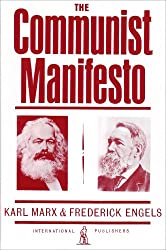
Rating: 7.7/10.
Written in 1848 in German, this 40-page book is one of the most influential political books ever written. Marx and Engels see society as divided into two classes, the bourgeoisie (people who hire workers and sell the goods) and the proletariat (people who trade their labor for money). The bourgeoisie class arose out of feudalism as industries developed. Marx complains that the proletariats are being exploited, their human skills reduced to no more than parts of a machine. It is also not possible to opt-out of this system, which forces everyone to be a participant.
In a short but often-quoted section, Marx predicts that the bourgeois system will inevitably cause its own downfall, as the proletariats will sink deeper and deeper into poverty, and this will eventually lead to revolt. This is equally relevant in 2020 as when it was written in 1848, so I can see why it had so much appeal in places like Russia and China. Interestingly, the book never uses the word “capitalism” which is what the system is called now.
Next, in the second section, Marx calls for the proletariats to unite and rise up against to the bourgeoisie. He envisions a society with no private property and everyone is equal, so that there is no class struggle. The section ends with a list of 10 demands, but the demands are vague and the book does not give details about how the new society should be run.
The final third of the book is less relevant now, basically it outlines a bunch of existing socialist movements at the time, and criticizes how each one is not doing enough to help the proletariats. These rival parties have mostly faded into obscurity. The book ends by a call to action, that the first communist revolution should happen soon, in Germany.



